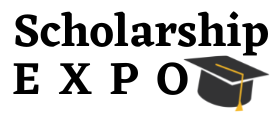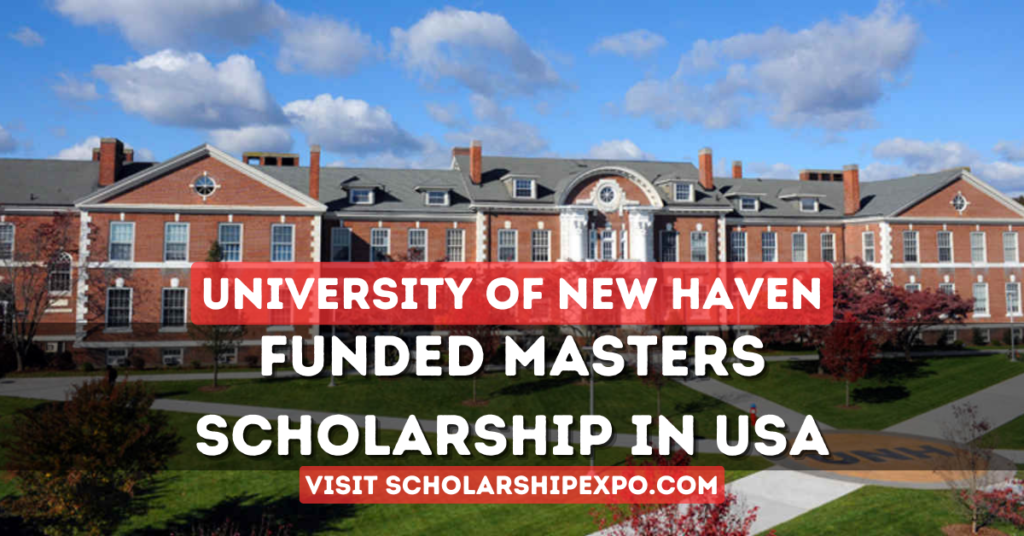If you are considering a career in cardiology and are interested in pursuing advanced training, the Medical College of Wisconsin (MCW) Cardiology Fellowship 2023 in the USA may be the perfect fit for you. In this comprehensive guide, we will provide you with all the information you need to know about the MCW Cardiology Fellowship, including an overview of the program, the different tracks available, the application process, and the benefits of training at MCW.
Also apply for: James Madison Graduate Fellowships 2024 in the USA
The MCW Cardiology Fellowship is a highly regarded three-year program that offers comprehensive clinical and research training in cardiovascular medicine. The program is accredited by the Accreditation Council for Graduate Medical Education (ACGME) and is affiliated with the prestigious Froedtert Hospital, a leading academic medical center in Milwaukee, Wisconsin.
Check: University of Toronto Postdoctoral Fellowship 2023 (Fully Funded)
Medical College of Wisconsin Cardiology Fellowship 2023 in the USA Details:
| Institute: | Medical College of Wisconsin Cardiology |
| Country | USA |
| Eligibility | Domestic & International Students |
| Deadline: | August 15. 2023 |
Collaborations and Facilities:
The Medical College of Wisconsin Cardiology Fellowship 2023 in the USA benefits from strong collaborations with other departments and divisions within MCW, such as internal medicine, surgery, radiology, pathology, pharmacology, biostatistics, epidemiology, and bioethics. This interdisciplinary approach fosters a comprehensive and holistic learning environment for fellows.
Furthermore, MCW provides state-of-the-art facilities and equipment for both clinical care and research. Fellows will have access to cutting-edge resources such as catheterization labs, electrophysiology labs, echocardiography labs, nuclear cardiology labs, cardiac MRI, and cardiac CT. These facilities enable fellows to gain hands-on experience with advanced diagnostic and therapeutic techniques, enhancing their skillset and preparing them for future practice.
Different Tracks of the MCW Cardiology Fellowship:
The Medical College of Wisconsin Cardiology Fellowship offers two distinct tracks for fellows, allowing them to tailor their training experience based on their career goals and interests.
1. Traditional Clinical Cardiology Training Track
The Traditional Clinical Cardiology Training Track is designed for fellows who are primarily interested in pursuing a career in clinical practice or clinical education. This track provides a balance of clinical and research training, with fellows spending 24 months on clinical rotations and electives and 12 months on research or scholarly activity.
Within this track, fellows have the opportunity to choose from a variety of electives that align with their specific interests and career objectives. Some of the elective options include advanced heart failure/transplant, advanced imaging, interventional cardiology, electrophysiology, adult congenital heart disease, and more.
As part of their research or scholarly activity, fellows are expected to work on a project under the guidance of a faculty mentor. This project culminates in the presentation of their findings at local or national meetings, allowing fellows to showcase their work and contribute to the advancement of cardiovascular medicine.
2. Clinical/Cardiovascular Research Training Track
The Clinical/Cardiovascular Research Training Track is tailored for fellows who aspire to pursue a career in academic research or research education. This track places a stronger emphasis on research, with fellows spending 18 months on clinical rotations and electives and 18 months on research or scholarly activity.
Fellows in this track have the opportunity to engage in various research topics spanning basic science, translational science, clinical trials, outcomes research, and health services research. The program encourages fellows to apply for extramural funding, such as grants from the National Institutes of Health (NIH) or the American Heart Association (AHA), to support their research endeavors.
Publication of research findings in peer-reviewed journals is strongly encouraged, as it plays a critical role in disseminating knowledge and contributing to the scientific community. Fellows in this track will have the opportunity to collaborate with faculty mentors and experts in their chosen research areas.
Check: University of Tasmania Scholarships 2023-24 in Australia (Fully Funded)
Fellowship Benefits:
There are numerous benefits to pursuing your cardiology fellowship at MCW:
1. Comprehensive Training
The MCW Cardiology Fellowship provides a comprehensive training experience that prepares fellows for a wide range of career paths in cardiology. The combination of clinical rotations, electives, and research opportunities ensures a well-rounded education that equips fellows with the necessary skills to excel in their chosen field.
2. Diverse Patient Population
MCW and its affiliated hospitals, including Froedtert Hospital, offer access to a diverse patient population. This exposure allows fellows to gain hands-on experience in managing a broad spectrum of cardiovascular diseases and conditions. Working with a diverse patient population enhances fellows’ clinical skills and provides a solid foundation for their future careers.
3. Renowned Faculty
The MCW Cardiology Fellowship boasts a faculty of over 50 renowned cardiologists who are leaders in their respective fields. These experts are dedicated to teaching and mentoring fellows, ensuring a high-quality educational experience. Fellows have the opportunity to learn from the best and receive guidance from experienced professionals throughout their training.
4. State-of-the-Art Facilities
MCW provides state-of-the-art facilities and equipment for both clinical care and research. Fellows have access to cutting-edge resources, such as catheterization labs, electrophysiology labs, and advanced imaging technology. This allows fellows to develop expertise in utilizing advanced diagnostic and therapeutic techniques, enhancing their clinical skills and patient care abilities.
5. Research Opportunities
The MCW Cardiology Fellowship offers numerous research opportunities, allowing fellows to contribute to the advancement of cardiovascular medicine. Fellows have the chance to engage in a wide range of research projects, from basic science to clinical trials. The program encourages fellows to apply for extramural funding and supports the publication of research findings in peer-reviewed journals.
6. Collaboration and Networking
MCW fosters collaboration and networking opportunities by establishing strong partnerships with other departments and divisions within the institution. Fellows have the chance to collaborate with experts from various fields, broadening their perspectives and facilitating interdisciplinary research. Additionally, fellows can connect with professionals from other institutions through conferences and meetings, expanding their professional network.
7. Competitive Salary and Benefits
Fellows at MCW receive a competitive salary and benefits package. This includes health insurance, dental insurance, vision insurance, life insurance, disability insurance, malpractice insurance, retirement plans, vacation time, sick time, and an educational allowance. The comprehensive benefits package ensures that fellows are well-supported throughout their training.
8. Vibrant City Life
Milwaukee, where MCW is located, offers a vibrant and diverse city life. Fellows can enjoy a variety of cultural, recreational, and entertainment options during their leisure time. The city’s thriving arts scene, sports events, restaurants, and outdoor activities provide a well-rounded living experience for fellows and their families.
Eligibility Criteria for Medical College of Wisconsin Cardiology Fellowship:
Before applying to the Medical College of Wisconsin Cardiology Fellowship 2023 in the USA, ensure that you meet the following eligibility criteria:
- Completion of an ACGME-accredited or AOA-approved residency program in internal medicine, or a program with ACGME International Advanced Specialty accreditation.
- Board certification or eligibility for Internal Medicine upon the start of the fellowship.
- Current BLS (CPR) and ACLS certification.
- U.S. citizenship, permanent resident status (green card), J-1 clinical visa, or Employment Authorization Document (EAD). Please note that the program does not sponsor H-1 visas.
- Graduates of non-U.S. or non-Canadian medical schools are required to obtain certification from the Educational Commission for Foreign Medical Graduates (ECFMG) and comply with all relevant policies set forth by the commission.
Interview Process:
If selected, you will be notified via email for an interview. The interviews are typically conducted from September to November. Due to the COVID-19 pandemic, interviews are currently being conducted virtually. It is important to prepare for your interview by familiarizing yourself with the program, its faculty, and the research opportunities available.
Ranking and Match Results:
After the interviews, both the program and the applicants rank their preferences. The final match results are announced by the NRMP in December. If you are successfully matched with the MCW Cardiology Fellowship, congratulations! You will embark on an enriching journey of advanced training in cardiovascular medicine.
Application Deadline:
The application deadline for Medical College of Wisconsin Cardiology Fellowship 2023 in the USA is annually on August 15th.
How to Apply for the Medical College of Wisconsin Cardiology Fellowship?
To apply for the Medical College of Wisconsin Cardiology Fellowship 2023 in the USA, follow these steps:
- Register and apply through the Electronic Residency Application Service (ERAS) program.
- The application deadline for this program is annually on August 15th.
- Register with the National Residency Matching Program (NRMP), as the MCW Cardiology Fellowship participates in the NRMP match.
- Submit the required documents through ERAS, including the completed common application form, three letters of recommendation (including one from your residency program director), personal statement, USMLE and/or COMLEX transcript, current CV, and ECFMG certification (if applicable).








